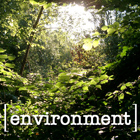|
BIODIVERSITY MATTERS
12 January 2004
According to Albaeco's editor, Dr. Fredrik Moberg, "Biodiversity will matter even more in the future". The World Conservation Union (IUCN) says island plant and animal species, which represent natural selection's most diverse and unique progeny, are the most endangered in the world.
According to Moberg, "On Hawaii, 85 plant species that are found nowhere else are in danger of extinction." Many contend that such insular ecosystems are irrelevant to the health of the world as a whole. But scientists estimate that 100 to 1,000 times as many species are falling into extinction than would without human influence.
The poorest among us "use dozens or even hundreds of species of wild and semi-domesticated plants and animals for food, medicine, fodder, energy, clean water, cash incomes, and insurance", but ecosystem integrity is essential for the wellbeing of all people. Global and local ecosystems support and maintain our economic and cultural life, and indeed their existence permits the formation of the natural world we know as the human habitat, capable of supporting and sustaining human life, in all its complexities. [Read Albaeco's SDU]

1,800 FEARED DEAD AFTER LANDSLIDE IN LEYTE, PHILIPPINES
ILLEGAL LOGGING MAY HAVE DESTABILIZED TERRAIN
18 February 2006
The mudslides began amid two weeks of torrential rains, which flooded and destabilized mountainside soils. Witnesses described the event as sounding "like the mountain had exploded". The entire village of Guinsahugon essentially disappeared beneath the heavy sheets of mud. [Full Story] |
|
ARCTIC ICE MELT WILL SOON OPEN NORTH-POLE SHIPPING
BUSINESSES, NATIONS TO DIVIDE NEW RESOURCES
5 January 2006
As ice melts across the arctic north, and the Arctic Ocean opens up in summer months, the mythic Northwest Passage is expected to open to regular shipping, within a generation. The Arctic Ocean may be ice free in warm months by the end of the 21st century. [Full Story]
|
|
CARTERET ATOLLS PLANET'S FIRST CLIMATE CHANGE REFUGEES
5 December 2005
On 26 November, the Guardian newspaper first reported that inhabitants of the Carteret atolls, six islands which form part of Papua New Guinea, in the southwest Pacific, have been subject to the first officially mandated permanent climate change evacuations. Rising sea levels have placed the islands in serious danger of permanent inundation... [Full Story]
|
|


